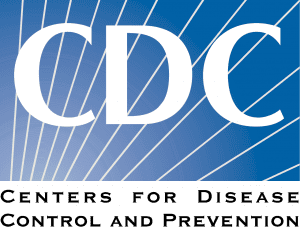- Interim Effectiveness of Updated 2023–2024 (Monovalent XBB.1.5) COVID-19 Vaccines Against COVID-19–Associated Emergency Department and Urgent Care Encounters and Hospitalization Among Immunocompetent Adults Aged ≥18 Years — VISION and IVY Networks, September 2023–January 2024
This analysis evaluated VE of an updated COVID-19 vaccine dose against COVID-19–associated emergency department (ED) or urgent care (UC) encounters and hospitalization among immunocompetent adults aged ≥18 years during September 2023–January 2024 using a test-negative, case-control design with data from two CDC VE networks. VE against COVID-19–associated ED/UC encounters was 51% (95% CI = 47%–54%) during the first 7–59 days after an updated dose and 39% (95% CI = 33%–45%) during the 60–119 days after an updated dose. VE estimates against COVID-19–associated hospitalization from two CDC VE networks were 52% (95% CI = 47%–57%) and 43% (95% CI = 27%–56%), with a median interval from updated dose of 42 and 47 days, respectively. Updated COVID-19 vaccine provided increased protection against COVID-19–associated ED/UC encounters and hospitalization among immunocompetent adults. - Combined Protection of Vaccination and Nirmatrelvir-ritonavir Against Hospitalization in Adults with COVID-19.
This article looks at the question of what if I do everything right? What if I get my vaccinations and I get early treatment, how can I expect to do? Among U.S. adults at risk for severe COVID-19 in Epic Cosmos, the lowest rate of hospitalization was among those receiving three or more mRNA vaccine doses and nirmatrelvir-ritonavir (aHR 0.22, 95%CI: 0.19–0.24). Adults who are at high-risk of severe COVID-19 disease, including vaccinated persons, should be considered for antiviral treatment. - Ivermectin for COVID-19 in Adults in the Community (PRINCIPLE): An Open, Randomised, Controlled, Adaptive Platform Trial of Short- and Longer-Term Outcomes
This was a multicenter, open-label, multi-arm, adaptive platform randomized controlled trial that included participants aged ≥18 years in the community, with a positive SARS-CoV-2 test, and symptoms lasting ≤14 days. Participants were randomized to usual care, usual care plus ivermectin tablets (target 300-400 μg/kg per dose, once daily for three days), or usual care plus other interventions. Co-primary endpoints were time to first self-reported recovery, and COVID-19 related hospitalization/death within 28 days. Recovery at six months was the primary, longer-term outcome. The primary analysis included 8,811 SARS-CoV-2 positive participants (median symptom duration five days), randomized to ivermectin (n=2157), usual care (n=3256), and other treatments (n=3398) from June 23, 2021 to July 1, 2022. Time to self-reported recovery in the ivermectin group compared with usual care (hazard ratio 1·15 [95% Bayesian credible interval, 1·07 to 1·23], median decrease 2.06 days [1·00 to 3·06]). COVID-19-related hospitalizations/deaths (odds ratio 1·02 [0·63 to 1·62]; estimated percentage difference 0% [-1% to 0·6%]), serious adverse events (three and five respectively), and the proportion feeling fully recovered were similar in both groups at six months (74·3% and 71·2% respectively (RR = 1·05, [1·02 to 1·08]) and also at three and 12 months. The authors concluded, “Ivermectin for COVID-19 is unlikely to provide clinically meaningful improvement in recovery, hospital admissions, or longer-term outcomes. Further trials of ivermectin for SARS-Cov-2 infection in vaccinated community populations appear unwarranted.”
- Cognition and Memory after COVID-19 in a Large Community Sample
Here the investigators invited 800,000 adults in a study in England to complete an online assessment of cognitive function and estimated a global cognitive score across eight tasks. Of the 141,583 participants who started the online cognitive assessment, 112,964 completed it. They report that participants who had recovered from COVID-19 in whom symptoms had resolved in less than four weeks or at least 12 weeks had similar small deficits in global cognition as compared with those in the no–COVID-19 group, who had not been infected with SARS-CoV-2 or had unconfirmed infection. (To give some context: As compared with uninfected participants (control), cognitive deficit — commensurate with a 3-point loss in IQ — was evident even in participants who had had mild COVID-19 with resolved symptoms.) However, larger deficits were seen in participants with unresolved persistent symptoms. (Here: Participants with unresolved persistent symptoms had the equivalent of a 6-point loss in IQ, and those who had been admitted to the intensive care unit had the equivalent of a 9-point loss in IQ.) Larger deficits were seen in participants who had SARS-CoV-2 infection during periods in which the original virus or the B.1.1.7 variant was predominant than in those infected with later variants and in participants who had been hospitalized than in those who had not been hospitalized. In a comparison of the group that had unresolved persistent symptoms with the no–COVID-19 group, memory, reasoning, and executive function tasks were associated with the largest deficits (−0.33 to −0.20 SD); these tasks correlated weakly with recent symptoms, including poor memory and brain fog. No adverse events were reported. Interesting was the finding that COVID-19 vaccination provided a small cognitive benefit, while reinfection was tied to an IQ loss of nearly 2 points, compared with no reinfection. - Prospective Memory Assessment Before and After Covid-19
Here 188,137 participants in the nationwide Norwegian Covid-19 Cohort Study from March 27, 2020, to April 26, 2023, a total of 134,373 participants (71%) completed at least one Everyday Memory Questionnaire (EMQ), and 111,992 (60%) had documented tests showing positive or negative status for SARS-CoV-2 infection as determined from the Norwegian Surveillance System for Communicable Diseases. They use something called the Everyday Memory Questionnaire (EMQ). This is a simple questionnaire where people report how often they might be having memory problems with a higher score being worse, meaning more memory problems. They all start with the same scores but then the mean EMQ scores were numerically higher (indicating worse memory problems) after a positive test than after a negative test at all time points (at 0 to 1 month after a test, at >1 to 3 months, at >3 to 6 months, at >6 to 9 months, at >9 to 12 months, at >12 to 18 months, and at >18 to 36 months, while they were the same before a SARS-CoV-2 positive test. - What is the Impact of Long-term COVID-19 on Workers in Healthcare settings? A Rapid Systematic Review of Current Evidence
The investigators sought to assess the effects of Long COVID among healthcare workers and its impact on health status, working lives, personal circumstances, and use of health service resources. They conducted a systematic rapid review by searching for relevant electronic databases and identified 3,770 articles of which two studies providing qualitative evidence and 28 survey studies providing quantitative evidence were eligible. Thematic analysis of the two qualitative studies identified five themes: uncertainty about symptoms, difficulty accessing services, importance of being listened to and supported, patient versus professional identity and suggestions to improve communication and services for people with Long COVID. Common long-term symptoms in the survey studies included fatigue, headache, loss of taste and/or smell, breathlessness, dyspnea, difficulty concentrating, depression and anxiety. They report that healthcare workers struggled with their dual identity (patient/doctor) and felt dismissed or not taken seriously by their doctors. The findings were in line with those in the literature showing that there are barriers to healthcare professionals accessing healthcare and highlighting the challenges of receiving care due to their professional role. They found that participants reported turning to social media groups for support, validation, and information.
Situation Dashboards

World Health Organization (WHO)
Novel Coronavirus (COVID-19) Situation from World Health Organization (WHO)

Johns Hopkins University (JHU)
Coronavirus COVID-19 Global Cases by the Center for Systems Science and Engineering (CSSE) at JHU

COVID-19 in US and Canada
1Point3Acres Real-Time Coronavirus (COVID-19) Updates in US and Canada with Credible Sources

Genomic Epidemiology COVID-19
Genomic Epidemiology of (COVID-19) Maintained by the Nextstrain team, enabled by data from GISAID.






